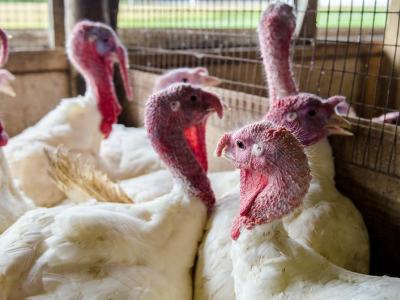Dec 26, 2007 (CIDRAP News) – A young woman in Egypt and another of almost the same age in Indonesia died of H5N1 avian influenza yesterday, raising the global H5N1 death toll to 211, the World Health Organization (WHO) said today.
Also, a Vietnamese official said a boy who died recently in northern Vietnam had the H5N1 virus, according to an Associated Press (AP) report published today. The WHO has not yet confirmed his case.
The Egyptian victim was a 25-year-old woman from Bany Suwef governorate, south of Cairo, the WHO said in a statement. She was hospitalized Dec 21 and died yesterday.
The WHO said the source of her infection was under investigation, while Egypt's health ministry, according to a Reuters report published today, said she had had contact with birds thought to be infected.
The Indonesian woman who died was a 24-year-old from West Jakarta municipality who fell ill Dec 14 and was hospitalized Dec 19, the WHO said in a statement. The source of her exposure to the virus is under investigation.
An official at Indonesia's avian flu center said the woman had bought a live chicken at a market and slaughtered it there before taking it home, according to a Reuters report published yesterday. But he said the case was still being investigated.
Indonesia has had 116 cases of H5N1 illness with 94 deaths, while Egypt has had 39 cases and 16 deaths, according to the WHO. The global count is 342 cases.
In Vietnam, testing has confirmed avian flu in a 4-year-old boy from Son La province in the north, according to an AP story quoting Nguyen Huy Nga, director of the health ministry's preventative medicine unit. The boy died Dec 16 in Hanoi after a 5-day illness, the story said.
Son La, about 187 miles northwest of Hanoi, has not had any recent H5N1 outbreaks in poultry, the AP reported.
If the WHO confirms the boy's case, he will be listed as Vietnam's 101st case-patient and 47th fatality.
Indonesian cluster ruled out
In other developments, Indonesian officials reported on Dec 22 that testing had ruled out avian flu in a family cluster of illnesses.
Lab tests excluded H5N1 infections in six members of an Indonesian family who were hospitalized Dec 21 with suspected cases, according to a Dec 22 Reuters report. Their cases had raised concern about possible person-to-person transmission of the virus.
Nyoman Kandun, Indonesia's director-general of communicable disease control, said two sets of laboratory tests on the six patients were negative for H5N1, Reuters reported.
The patients are from a village in Banten province. They fell ill with high fevers after more than a dozen ducks died in their backyard, the story said.
Test results pending in Pakistan
In Pakistan, confirmatory testing was not yet complete for a group of eight patients, including five in one extended family, in whom previous preliminary tests indicated H5N1, a WHO official said today.
John Rainford, a WHO spokesman in Geneva, told CIDRAP News he expected confirmatory test results would probably be released tomorrow. But he said the results of genetic sequencing of the viruses will take longer.
"The sequencing is on a different track [from the confirmatory tests], and that can take a week or possibly longer," Rainford said.
He also said there may be a new suspected H5N1 case in Pakistan, but information so far was very sketchy. The local disease surveillance system is "engaged and ramped up," with the result that flu-like illnesses are more likely to be reported, he noted.
According to previous reports, the Pakistan patients who tested positive included a veterinarian who had helped cull infected chickens, three of his brothers, a cousin, and three other people: a man and his niece who were involved in poultry culling in the same vicinity as the veterinarian, and a farm worker from another town nearby. Another brother of the veterinarian died of an H5N1-like illness but was buried without being tested.
The WHO sent a team to investigate the Pakistan situation last week, and US Navy Medical Research Unit 3 in Cairo sent a portable lab. The cases occurred in northern Pakistan, not far from the Afghan border.
The WHO's Keiji Fukuda said last week that the Pakistan cases probably represent a mixture of poultry-to-human cases and human-to-human transmission arising from close contact when people cared for sick relatives. The WHO has said there has been no evidence of sustained transmission.
See also:
WHO statement on Egyptian case
http://www.who.int/csr/don/2007_12_26a/en/index.html
WHO statement on Indonesian case
http://www.who.int/csr/don/2007_12_26/en/index.html


















